Approaching Career Readiness in Alternative Education

By: Emily Liebtag and Lauren Barry.
Janet Platt, current Instructional Leader who has been at Boston Day and Evening Academy since 2004, shared “Just because you don’t have a lot of credit, doesn’t mean you haven’t learned anything or don’t have value”.
For 25 years, Boston Day and Evening Academy have provided a safe, student-centered, trauma-informed setting for students who have not been well-served in traditional models. Instead of repeating more of the same traditional approaches used in high schools, BDEA realized that students need something different. They use a competency-based approach to best meet students where they are and provide them meaningful learning experiences to help them master useful skills, knowledge, and dispositions. An intentional low student to teacher ratio ensures ample one-on-one support and guidance. Each floor of the three-story building has a student support office with 4-5 counselors that are constantly engaging with students and providing social and emotional support, as well as connections to community-based resources as needed.
Another way that BDEA is providing a unique experience for learners is their Capstone course. Students engage in a capstone project during their time at BDEA that aligns with their interests and goals beyond their time at the school. Mr. Muhammed leads the Capstone course, and models how his own interests in art have intertwined with his own career trajectory.
Students add BDEA, like all students, each has their own story and unique background. These stories craft who they are, are a part of their identity and are honored at BDEA. Murray Woodard who works in Community Engagement at the Kauffman Foundation shared, “You can tell from being at BDEA and talking to students that they aren’t ever made to feel like they don’t belong, the school and educators respond to their needs rather than forcing students to fit into a mold that was pre-crafted or determined for them.”
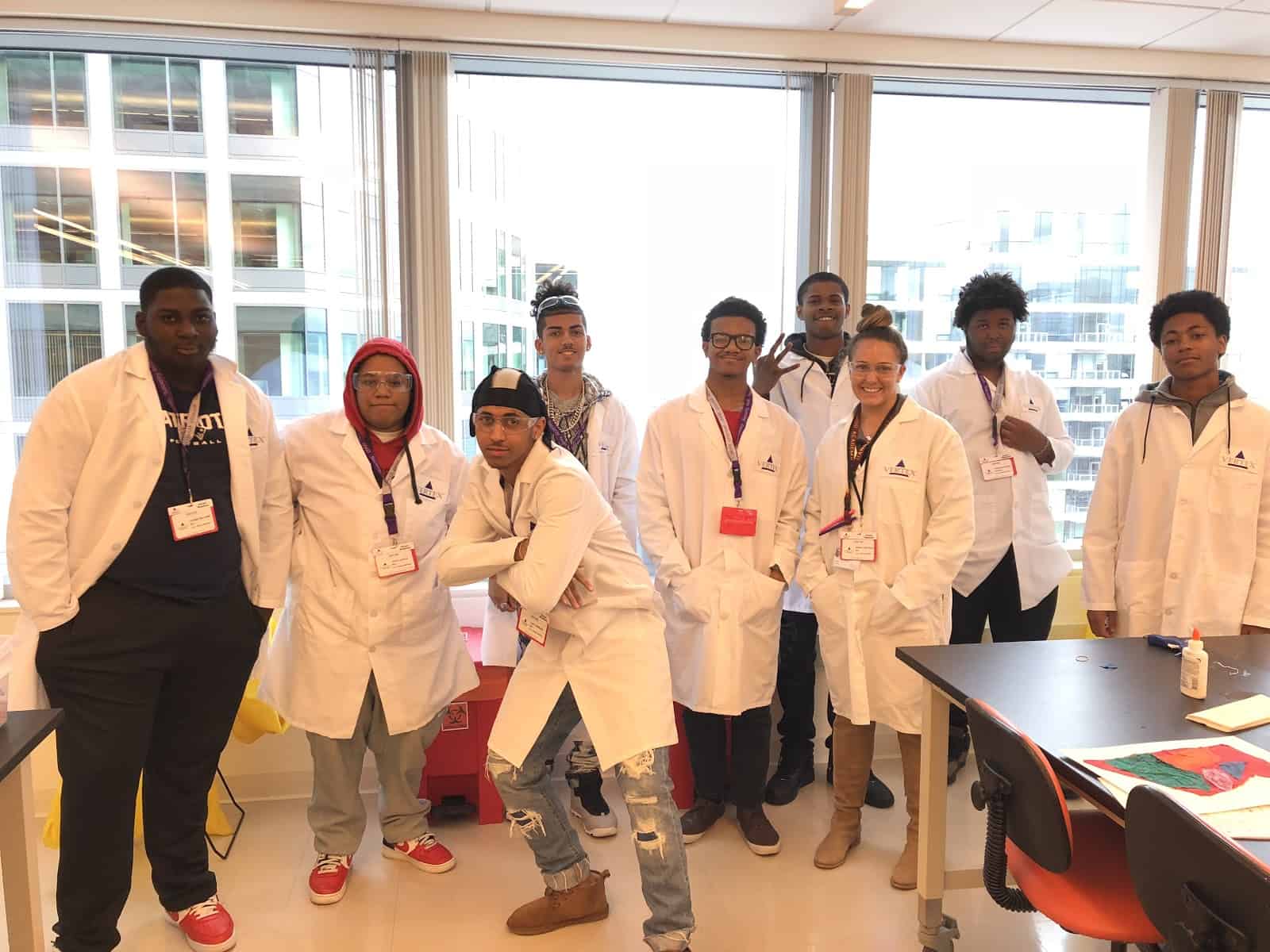
BDEA 2.0
During the 2018-19 School Year, BDEA launched a new program (dubbed BDEA 2.0) specifically designed around Black and Latino young men who were not experiencing success in their flagship school.
The majority of students at BDEA 2.0 have grown up in the cycle of poverty, and have experienced a multitude of childhood traumas. For many BDEA students, life circumstances and the accompanying mental health concerns have hampered their success academically, and most do not have a clear vision for their future.
Growing up in poverty, most BDEA 2.0 students have lost the confidence to envision themselves as successful college students, or as participants in the growing innovation economy in Boston. Based upon its existing competency-based model, BDEA seeks to design a new student roadmap that infuses college and career competencies into a curriculum that will center around empowerment in order to rebuild students’ confidence, inspire them to dream big, and set them on a path towards upwardly mobile careers.
The new BDEA 2.0 College and Career Readiness roadmap is divided into three phases: Hook, Commit, and Launch.
|
Hook In the hook phase, students will explore careers that interest them, investigate the requirements for accessing those careers, and participate in a preliminary paid internship to build basic career readiness skills. Commit As they move into the Commit phase, BDEA 2.0 students will refine their career plans, complete an industry-specific internship, and gain more exposure to professional networks via job shadowing and mentorships. Launch By the Launch phase, students will be ready to choose an individual path: Early College/Additional Internship, Vocational Apprenticeship, or additional career training via a program such as Year Up. |
Throughout the Hook, Commit, and Launch phases, students will benefit from a rigorous project-based curriculum that is empowering, inspiring, and relevant. In addition, they will participate in continued Career Exploration/Readiness courses, which build both their skills and their confidence.
Boston Day and Evening Academy are working with learners who many might look past and providing them meaningful experiences to get them not only a high school degree, but the confidence to continue on whatever path they so choose beyond BDEA.
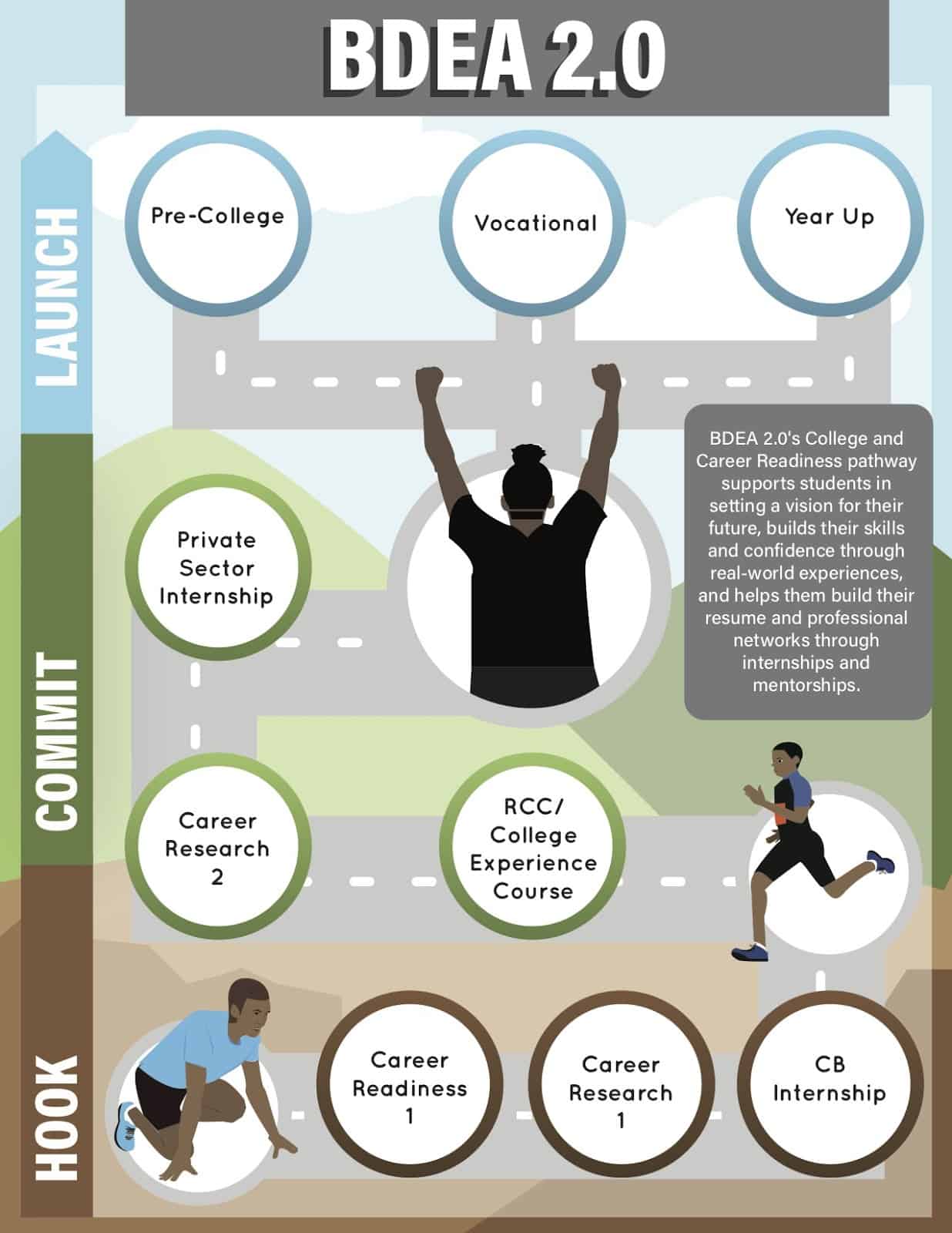
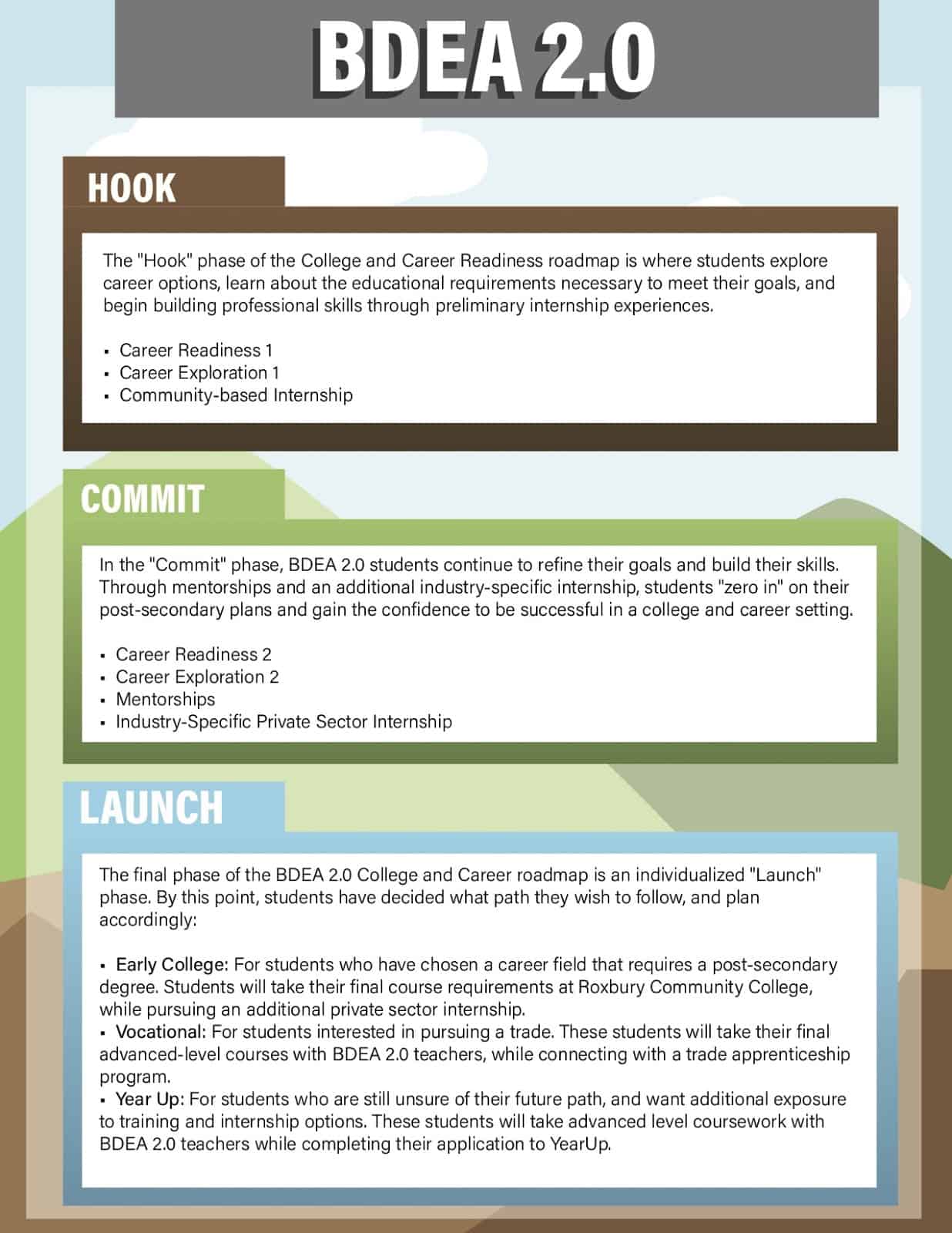
For more, see:
- Smart Cities: Boston
- LearnLaunch: Boosting Boston EdTech
- 11 Alternative Schools That are Real Alternatives
Stay in-the-know with innovations in learning by signing up for the weekly Smart Update.
Lauren Barry is the Director of Institutional Advancement at the Boston Day and Evening Academy.
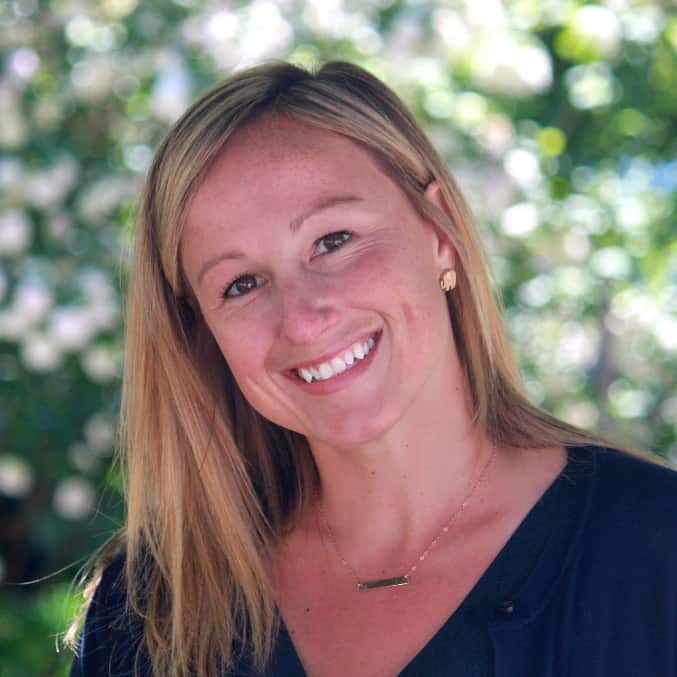






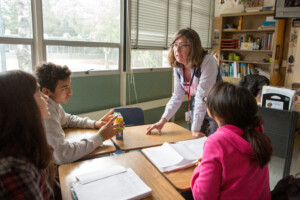
0 Comments
Leave a Comment
Your email address will not be published. All fields are required.